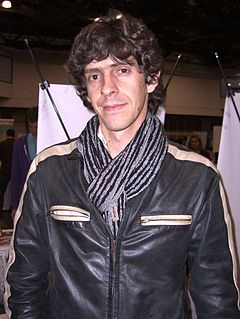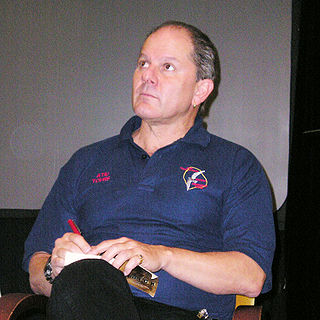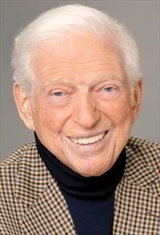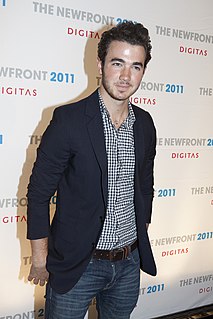A Quote by David Morrell
As much as I like it when a book I'm writing speeds along, the downside can be that an author becomes too eager to finish and rushes the end. The end is even more important than the first page, and rushing can damage it.
Related Quotes
Movies are definitely more fun because there are so many different seasons in a movie. It is exciting to be drafting together. Writing a book is very hard, it's like writing 15 college term papers in a row, and you are just like, "when is going to end?" You can communicate so much more when you are writing a book, and you can go so much deeper.
If an author be supposed to involve his thoughts in voluntary obscurity, and to obstruct, by unnecessary difficulties, a mind eager in the pursuit of truth; if he writes not to make others learned, but to boast the learning which he possesses himself, and wishes to be admired rather than understood, he counteracts the first end of writing, and justly suffers the utmost severity of censure, or the more afflicting severity of neglect.
But novels are never about what they are about; that is, there is always deeper, or more general, significance. The author may not be aware of this till she is pretty far along with it. A novel's whole pattern is rarely apparent at the outset of writing, or even at the end; that is when the writer finds out what a novel is about, and the job becomes one of understanding and deepening or sharpening what is already written. That is finding the theme.
Sometimes when you write something, you have that day when you start writing and you feel really good, and you start changing it. At the end, it lost the essence. It lost the first idea, the energy that it had, it's going down after every change. And at the end it's something soft and too much rewritten or too much rebuilt that doesn't have the same energy as the beginning. So, I like the first takes because of that, you know. It has that first energy that sometimes it's difficult to recreate.
Editors can be stupid at times. They just ignore that author's intention. I always try to read unabridged editions, so much is lost with cut versions of classic literature, even movies don't make sense when they are edited too much. I love the longueurs of a book even if they seem pointless because you can get a peek into the author's mind, a glimpse of their creative soul. I mean, how would people like it if editors came along and said to an artist, 'Whoops, you left just a tad too much space around that lily pad there, lets crop that a bit, shall we?'. Monet would be ripping his hair out.
I sometimes think about that, when I finish in something big I find it even hard, I feel like I lose an actual noticeable percentage of my reading time. Even on the reader end I find it so hard when a book that I love so much ends, to find the kindness to enter into a new one. Do you know what I'm saying? To find my way in, I feel like even there's that space after. I just love inhabiting a book that hits right.







































